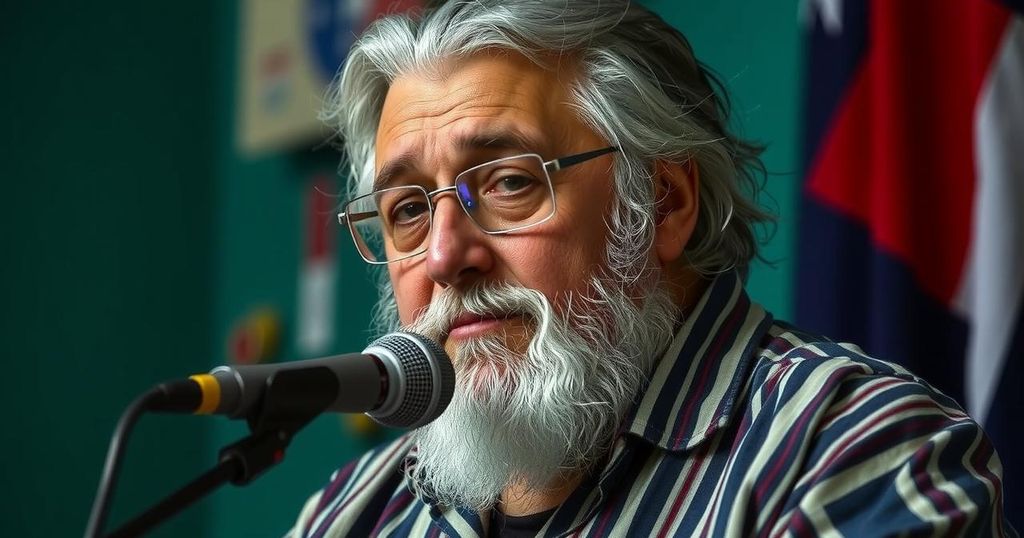Jose Mujica, former president of Uruguay, has publicly criticized the regimes of Cuba, Venezuela, and Nicaragua, describing their governance as ineffective and hypocritical regarding democratic principles. He expressed frustration over election manipulations in Venezuela and Nicaragua while addressing Cuba’s adherence to a failed socialist model. Mujica’s reflections draw attention to the disconnect between revolutionary ideals and reality for citizens suffering under these governments.
Former Uruguayan President Jose Mujica has expressed critical views on the regimes of Cuba, Venezuela, and Nicaragua, highlighting what he perceives as their failures in governance. Mujica stated that while Cuba’s system—governed by the Communist Party—should be assessed differently, he ultimately finds the Cuban model ineffective. He pointed out the hypocrisy in dialogues with nations like China and Vietnam, which exhibit similar governance styles. Mujica’s previous plan to discuss economic reforms with Cuba alongside President Lula of Brazil has not yet materialized, although Lula has visited Cuba recently.
The former president’s criticisms extend particularly to Venezuela and Nicaragua, where he lamented the manipulation of elections and the lack of true democratic principles. He differentiated between Hugo Chavez and Nicolas Maduro, indicating that Chavez accepted electoral defeat, whereas Maduro has resorted to fraud. Despite his disappointment with these regimes, Mujica remains a supporter of democratic ideals, which he argues are undermined by the actions of these governments.
At his advanced age, Mujica has stepped back from politics, choosing a quieter life, yet continues to share his insights on regional issues. His comments have not been welcomed in Havana, reflecting his disillusionment with the ideals of the Cuban Revolution, which he once embraced, but now views as having failed drastically. The challenges in Cuba persist, as the population struggles through economic hardships and systemic failures, compounded by the leadership’s unwillingness to adapt or reform their policies.
Mujica’s statements serve as a poignant reminder of the disconnect between revolutionary aspirations and the reality faced by citizens, who must endure prolonged hardships, including ongoing blackouts. This highlights the pressing need for genuine dialogue and reform in these nations if they are to move forward towards more sustainable governance.
The recent comments by Jose Mujica have sparked discussions surrounding the political landscapes of Cuba, Venezuela, and Nicaragua. As a former leader who has historically supported leftist movements in Latin America, Mujica offers a unique perspective on current regimes that claim to advance socialist ideals. His critique is significant as it comes from someone who once upheld similar principles yet has recognized their failures in practice. Mujica’s reflections illuminate broader challenges faced by these nations, including issues with democratic integrity and the effectiveness of authoritarian governance.
In conclusion, Jose Mujica’s criticisms of Cuba, Venezuela, and Nicaragua underscore a profound concern for the absence of true democracy and effective governance in these nations. His experiences and reflections highlight a tragic disconnect between socialist ideals and practical realities. Mujica’s advocacy for honest political accountability challenges the current leadership in these countries to reassess their approaches to governance and relationship with their citizens, further emphasizing the need for meaningful reform.
Original Source: havanatimes.org






